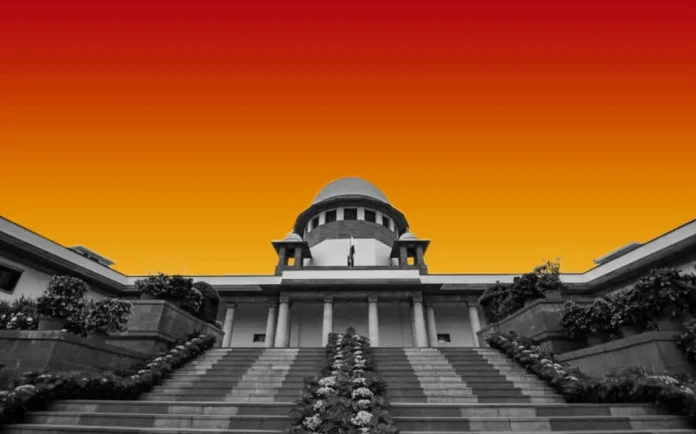The Supreme Court of India has indicated that the curative petition filed by Surendra Koli one of the principal accused in the Nithari killings against his conviction in the last pending case, “deserves to be allowed.”The observation marks a potential turning point in one of the most sensational and horrifying criminal cases in India’s modern judicial history. Koli, who had been convicted for the murder and rape of a 15-year-old girl in Noida’s Nithari village, filed this curative plea after being acquitted in twelve other related cases by the Allahabad High Court.
A three-judge bench comprising Chief Justice BR Gavai, Justice Surya Kant, and Justice Vikram Nath heard the matter and reserved its verdict after expressing serious reservations about the evidentiary basis of Koli’s conviction. The bench noted that the conviction in the final pending case rested primarily on a single confessional statement and the alleged recovery of a kitchen knife. The Court reportedly remarked that such limited evidence could not sustain a conviction in the absence of corroborative proof, terming the situation “anomalous.”
The Nithari case, which came to light in 2006, shocked the entire nation when human remains, mostly belonging to women and children, were found buried near the residence of businessman Moninder Singh Pandher in Noida’s Sector 31. The gruesome discovery led to multiple First Information Reports (FIRs) and a series of trials implicating both Pandher and his domestic help, Surendra Koli. Over the years, Koli was convicted and sentenced to death in several of these cases, while Pandher was acquitted in most.
However, the legal journey of the Nithari case has been long and complex. In 2023, the Allahabad High Court acquitted both Koli and Pandher in twelve out of thirteen cases, citing serious procedural lapses, unreliable witness testimonies, and lack of direct forensic evidence linking the accused to the crimes. The court observed that the investigation was flawed and that the evidence presented was insufficient to meet the threshold of guilt beyond a reasonable doubt. These acquittals were subsequently upheld by the Supreme Court in July 2025.
The only remaining conviction pertains to the case involving the 15-year-old girl, in which the trial court had sentenced Koli to death. This sentence was later commuted to life imprisonment due to inordinate delays in the disposal of his mercy petition. Koli’s curative plea in this last case, therefore, represents the final judicial opportunity for him to clear his name after nearly two decades of incarceration.
The apex court’s latest remarks suggest a shift in judicial approach towards a more cautious interpretation of evidence in the Nithari trials. The bench’s comments underline the judiciary’s responsibility to correct potential miscarriages of justice, particularly in cases where the death penalty or life imprisonment has been imposed. Legal experts believe that the Court’s inclination to allow Koli’s curative petition could set a precedent for stricter evidentiary scrutiny in criminal cases involving capital punishment.
The case also raises broader questions about India’s criminal justice system—specifically, the handling of sensational cases by investigative agencies and the challenges of ensuring fair trial standards amidst public outrage and media scrutiny. Over the years, rights groups and legal commentators have questioned the quality of evidence and the investigative process in the Nithari matter, calling for accountability in cases where convictions were later overturned due to lack of credible proof.
If the Supreme Court ultimately allows Koli’s curative plea, it would effectively close the last pending criminal proceeding against him, making him a free man after nearly twenty years of imprisonment. This would mark the end of a long and controversial chapter in India’s judicial history, one that oscillated between the horror of the crimes and the persistent legal debate over justice, evidence, and procedural integrity.


